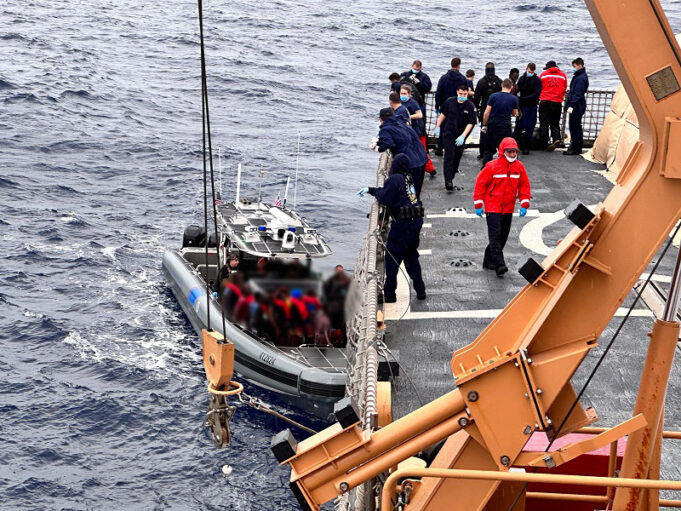by Brett Wilkins
United Nations experts recently renewed calls to protect migrants following the death of at least 40 Haitians in a boat fire in the Atlantic Ocean.
The New York Times reported that over 80 people were packed into the vessel when it caught fire off the coast of Cap-Haïtien enroute to the Turks and Caicos Islands.
The United Nations’ International Organization for Migration (IOM) said that 41 migrants were rescued by the Haitian Coast Guard, with 11 of the survivors including burn victims, rushed to the nearest hospital.
“This devastating event highlights the risks faced by children, women, and men migrating through irregular routes, demonstrating the crucial need for safe and legal pathways for migration,” said Grégoire Goodstein, IOM’s chief of mission for Haiti, July 19.
“Haiti’s socio-economic situation is in agony. The extreme violence over the past months has only brought Haitians to resort to desperate measures even more.”
Haiti is enduring a humanitarian and security crisis in which over 1,000 people have been killed, wounded, or abducted by members of gangs that control much of the capital, Port-au-Prince. Hundreds of Kenyan police officers have been deployed to Haiti as part of a multinational force tasked with restoring order.
According to IOM:
“The lack of economic opportunities, a collapsing health system, school closures, and the absence of prospects are pushing many to consider migration as the only way to survive. … IOM research found that 84 percent of migrants returned had left to seek job opportunities abroad.
For the vast majority of Haitians, regular migration is an extremely challenging journey to consider, let alone pursue, leaving many seeing irregular migration as their only option, a particularly life-threatening one in most instances.”
IOM said the Haitian Coast Guard “has observed an increase in the number of attempts and departures by boat” in recent months.
“Coast guards from countries in the region, including the United States, the Bahamas, the Turks and Caicos Islands, and Jamaica have also reported a growing number of boats originating from Haiti being intercepted at sea,” the group said.
“More than 86,000 migrants have been forcibly returned to Haiti by neighboring countries this year. In March, despite a surge in violence and the closure of airports throughout the country, forced returns increased by 46 percent, reaching 13,000 forced returns in March alone.”
Amid pressure from hundreds of advocacy groups—and alleged abuse of Haitian migrants by U.S. border authorities—the Biden administration in 2022 extended deportation protections, known as Temporary Protected Status (TPS), for more than 100,000 Haitians already in the United States through this August 3. This marked a departure from the administration’s earlier mass deportation of Haitian asylum-seekers.
In June, the administration further extended TPS eligibility for over 300,000 Haitians in the U.S. for an additional 18 months, a move hailed by migrant rights advocates.













